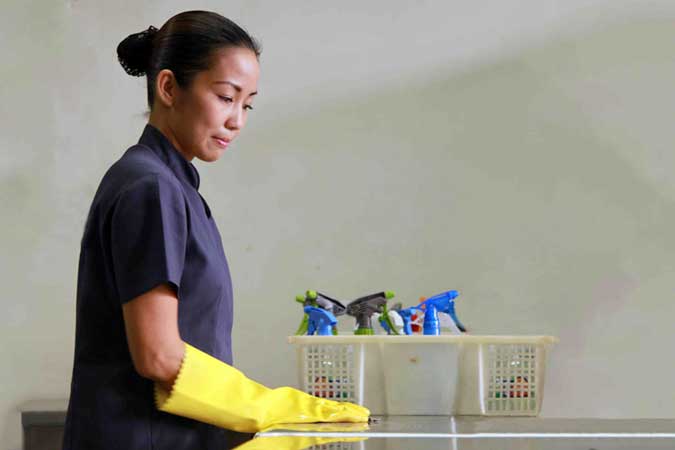
Upgrade to High-Speed Internet for only ₱1499/month!
Enjoy up to 100 Mbps fiber broadband, perfect for browsing, streaming, and gaming.
Visit Suniway.ph to learn
 OFFICIALGAZETTE.GOV.PH
OFFICIALGAZETTE.GOV.PHBy Almira Louise S. Martinez, Reporter
KAZAM, an online platform by Azcalun, Inc. that connects homeowners and housekeepers, seeks to help more users find the right matches through its app.
“You waste a lot of time by texting people, posting online, and then ending up not getting exactly what you’re looking for,” Cris Azaña, co-founder and chief executive officer at Azcalun, told BusinessWorld in an interview.
She said people usually find domestic helpers through agencies, referrals from friends and family and Facebook, which causes a lot of frustration.
“If people are going digital in terms of hiring kasambahays (house helpers), maybe it’s high time we give them an app or platform where they can talk there directly,” she said.
Kazam was launched in 2021 as a website and expanded to a mobile app in 2022. Both helpers and homeowners can register for free, but employers need a “reply credit plan” or an “unlimited time-bound subscription” to reply to job seekers.
Upon registration, users can also verify their profiles by scanning or uploading valid IDs or a live selfie. “This is to create trust between the two users, so that their profiles can be more trustworthy to each other,” Ms. Azaña said.
The app works like most dating apps, where users can swipe right to their preferred candidates, and left to decline. It uses a “personality-matching algorithm” funded by the Department of Science and Technology (DoST), which aims to create a compatible employee-employer relationship.
“One of the things that the grant funded was deep-dive research into how helpers and employers interact and how to predict whether they will stay or have a good working relationship,” she said.
Helpers can also add their desired salary, skill set, job experiences, gender orientation and preferred work setup to find the employer who fits their needs.
“We’re trying to make it like a LinkedIn for helpers,” Jesus Antonio Gerardo Lucero, co-founder and chief operating officer at Azcalun, said. “We want to let them showcase what they have done so they can increase their earning potential through the app.”
Once the helper and employer agree on a job offer, a pre-filled employment contract is provided through the app, in line with Republic Act 10361 or the Kasambahay law.
“They can fill out an editable contract that states the scope of benefits like Social Security System, PhilHealth (Philippine Health Insurance Corp.) and allowances,” Ms. Azaña said.
Out of 1.4 million domestic helpers in the Philippines, only 2.5% or 35,000 have written employment contracts, while 1.36 million have no contracts, according to the Labor department.
Under the law, contracts must include the duties and responsibilities, period of employment, compensation, authorized deductions, hours of work, rest days, allowable leaves, board and lodging, agreements on deployment expenses and termination of employment.
“We do not intervene in the interaction of the kasambahay and the owner, but we can sure as hell make it easier for them to comply for the protection of each other,” Ms. Azaña said.
Kazam has 22,000 users, 16,000 of whom are house helpers and 6,000 are homeowners. It aims to reach a million users by June 2026.




